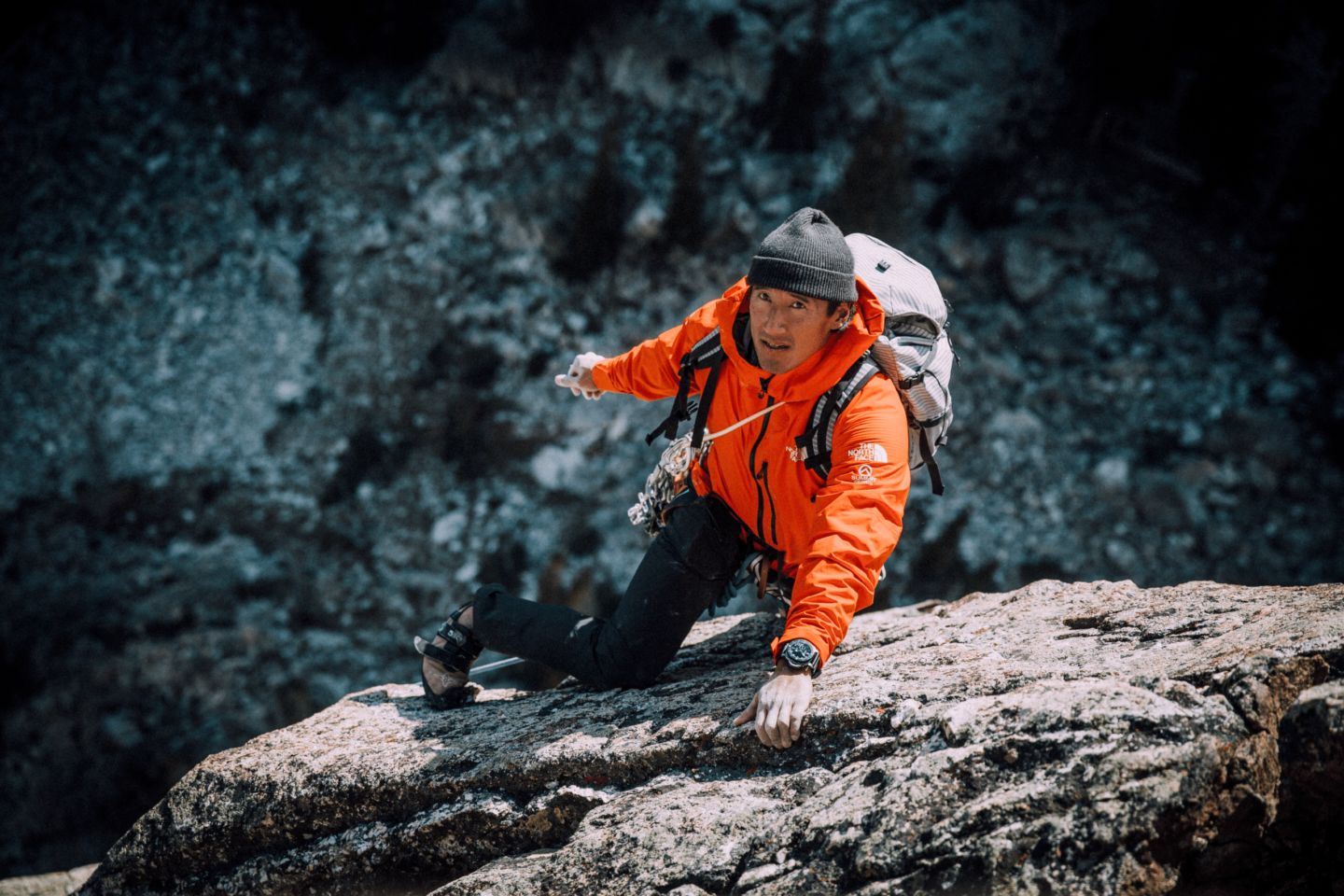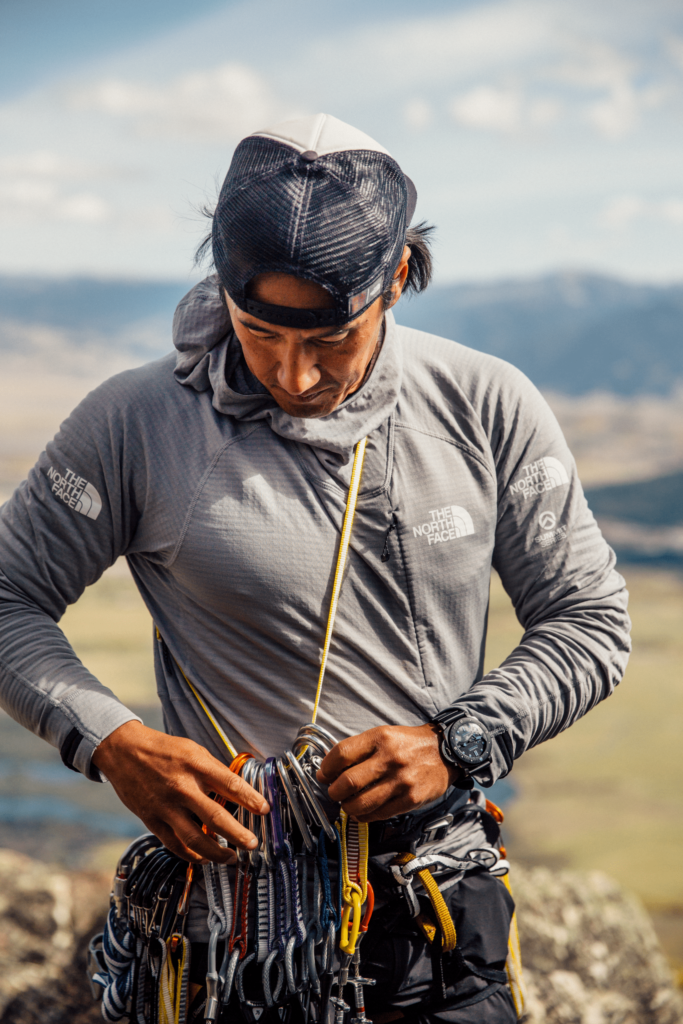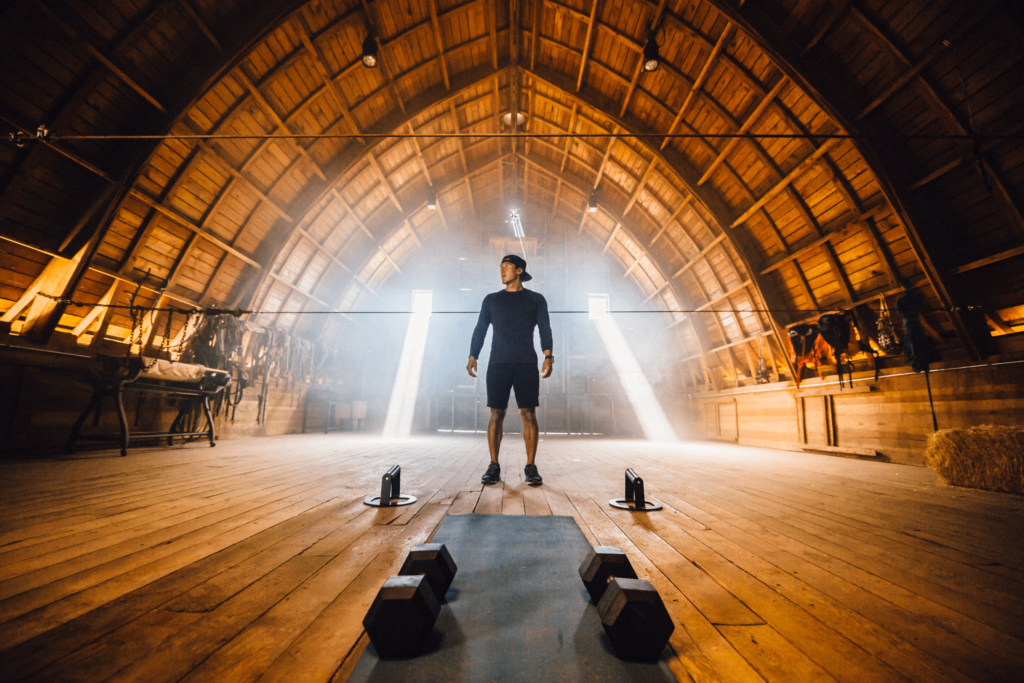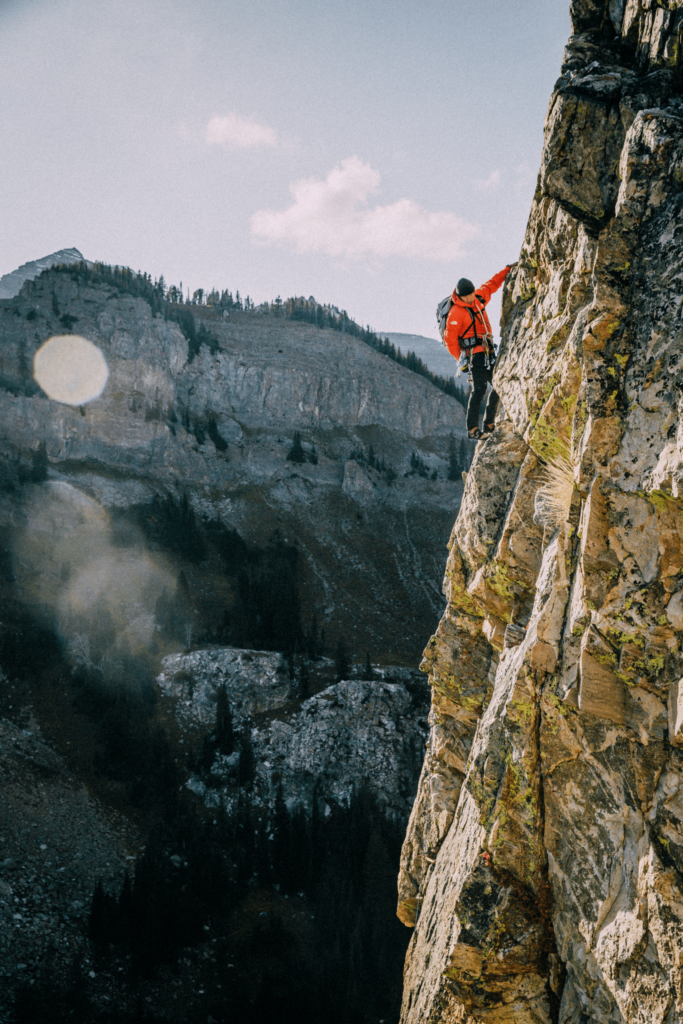It takes steely resolve to be a professional athlete. But what Jimmy Chin possesses is more like insanity laced with talent and doggedness when you consider how one man can balance the life of a mountain climber and skier with that of a photographer, award-winning filmmaker, and father to two young children. It’s enough to make even an aspiring overachiever sweat, but you’d never know it from speaking with him.
With his gentle cadence and measured tempo, 47-year-old Chin doesn’t fit the image of a high-energy go-getter, but rather one who is perfectly in his element when in the actual elements — even the ones that routinely try to kill him.
Over the course of his 20-year-career, Chin has ascended and descended some of the world’s most treacherous mountains. In 2006 he became the first American and one of the only people to ski off the summit of Mount Everest. In 2011, together with fellow adventurers Conrad Anker and Renan Ozturk, Chin was on the first successful climb of Meru Peak’s Shark’s Fin route, one of the most difficult routes in the Himalayas.
Because he also knows his way around a camera, that ascent was captured in his documentary film Meru — which he co-directed with his wife Elizabeth Chai Vasarhelyi — and it won the Audience Award at the 2015 Sundance Film Festival. His most significant win would come four years later at the 91st Academy Awards, when he and Chai Vasarhelyi were given the Oscar for Best Documentary Feature for Free Solo. The film followed his friend Alex Honnold’s 2017 climb up the almost 1,000-m high vertical rock face of El Capitan without a safety rope. That same year, Chin was also invited to become an ambassador for luxury Italian watchmaker Panerai, joining other acclaimed sportsmen like freediver Guillaume Nery, Olympic swimmer Gregorio Paltrinieri and modern-day explorer Mike Horn.
Despite his achievements as a lensman, Chin claims he’s simply moonlighting as a filmmaker. If not for the four upcoming films, a photography book in the works, and responsibilities as brand ambassador for Panerai, he would still be training six to seven days a week. Between all his hours on the road and on the phone, Chin reckoned he sounds “like a pretty normal person now”. Well, he’s not, and our quick chat with him over video call shows just why.
A profession in the mountains is not a typical one. Was this always what you wanted to do?
Strangely, I didn’t find climbing until I was in my late teens, going into college. My parents are very stereotypical Chinese immigrant parents, so I grew up thinking there were only three career options: be a lawyer, a doctor, or go into finance. I was learning the violin at age three, I swam competitively from age six years through to high school, and I also studied martial arts. It was a very structured life.
Was it an enjoyable one?
I liked some aspects of it, like competing, especially since I was starting to do well in competitions. But it was just constant training and practicing. I was probably 10 when I found skiing, and I loved it because it was outdoors, there weren’t any rules and it was just about having fun. We had a tiny ski hill behind our house in Minnesota and if I did everything else well, I got to go skiing. Eventually I discovered climbing and fell in love with it because both are centred around mountains — just that one is fed by gravity and the other involves battling it.
What did you like about it?
It’s the lifestyle: living on the road, following the seasons and going to these incredible places. Instead of sitting in a car looking at the landscape, I get to go out and literally put my hands on that landscape. I also felt like I found my tribe in the climbing community. Climbing was a very fringe activity back then, so we were all misfits who had chosen to live very intentional lives. The physical aspects of climbing also translated very easily for me because I knew what it was like to train really hard, have body awareness and enjoy the mental game. So I really appreciate how my parents shared with me this ideal of excellence and pushing hard to do something at a very high level.
Not everyone turns their passion — especially a fringe one — into a career, though.
I didn’t really think of it as a career because I didn’t even know you could be a professional climber back then. There were very, very few elite climbers being paid to climb when I started. I actually started to get paid as a photographer and as an athlete at around the same time. Those two careers were always parallel to each other, and ended up evolving together.
How did you parents react to that decision?
I was supposed to be taking my LSAT (Law School Admission Test) and going to grad school, but they didn’t know that I had actually moved into my car and was living in the back of Camp 4 in Yosemite [National Park]. They were totally mortified. My mom was upset and told me there was no word in Chinese for what I do. Five thousand years of written language and we didn’t even have a word for “professional climber”. She’d tell my sister that she had raised a homeless man.
But once I started getting sponsors and had my work published in magazines, they finally understood. They would buy every issue of National Geographic that my work was in and display them on the coffee table.
You’ve had a number of near-death run-ins. You even survived two avalanches. How do you push past the fear and get back to the mountains after something so harrowing?
Because I can’t not do it. Being in the mountains and spending time with that community gives so much meaning to my life. It inspires almost everything I do — my films, my photography, my health and mental wellness. Part of what makes it so appealing is the decision-making process and the risk assessments. It’s not just a physical endeavour. It’s almost like being a mathematician or scientist, because you’re constantly problem-solving. It’s mentally, physically, emotionally and spiritually engaging.
How does all of that inform your creative projects?
When you listen to incredible music or read incredible literature, there is so much depth of experience there. I always imagined that they had to have drawn from something really deep to create that art. I like to think that the experiences I’ve had are so deep and so raw that I can bring that to the subjects in my work.



